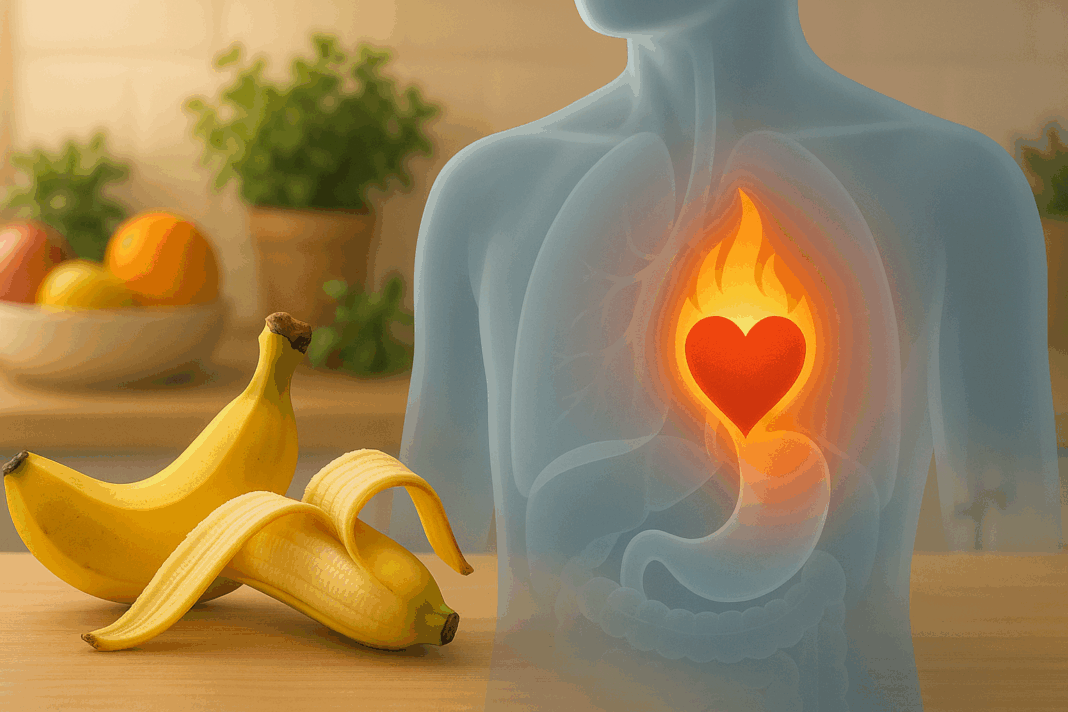Bananas are widely regarded as one of the most accessible and nutrient-rich fruits in the world, often promoted for their soothing effects on the digestive system. However, a growing number of individuals are asking a surprising question: why do bananas give me heartburn? This seemingly paradoxical experience has prompted a closer examination of how certain foods interact with the gastrointestinal tract, particularly when it comes to acid production and reflux. While bananas are typically thought of as mild and even healing for the stomach, they can sometimes trigger discomfort in the form of heartburn, indigestion, or acid reflux. Understanding the reasons behind this phenomenon requires an exploration into the acidic and non acidic foods landscape, gut health dynamics, and how holistic supplements may provide targeted relief.
You may also like: The Ultimate Guide to Gut Healthy Meals: Best Meals for Gut Health and Nourishing Recipes You’ll Love
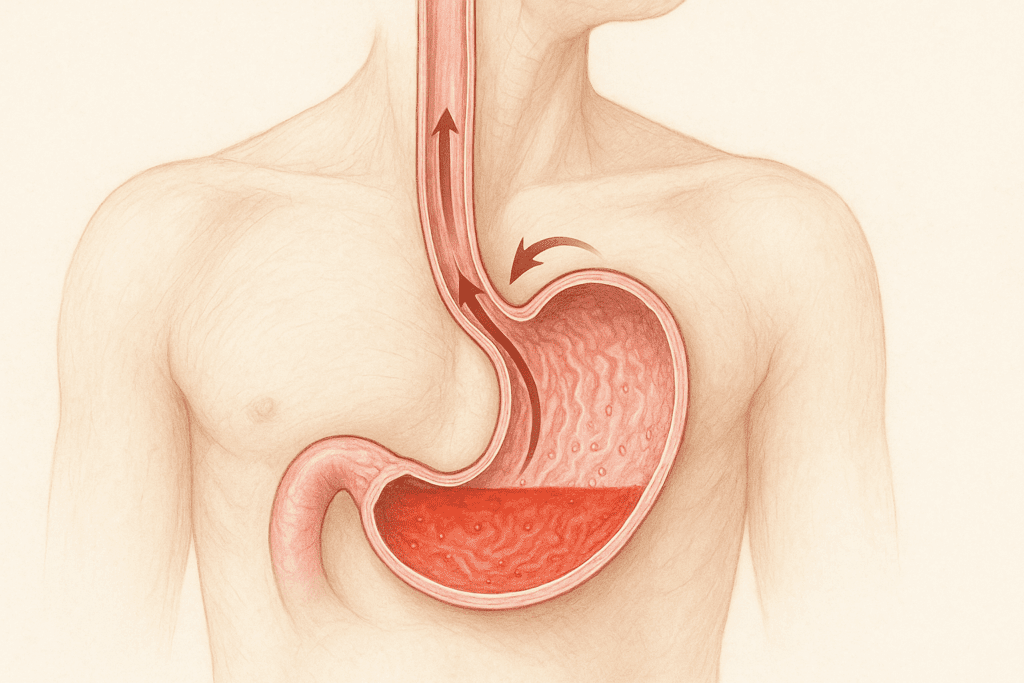
The Digestive Tract and Acid Regulation: Understanding the Basics
The human digestive system is a complex and highly regulated system designed to process food, absorb nutrients, and eliminate waste efficiently. Central to this process is the stomach, where hydrochloric acid plays a key role in breaking down proteins and activating digestive enzymes. Normally, this acidic environment is carefully maintained within the stomach lining. However, when stomach acid flows back into the esophagus—a condition known as gastroesophageal reflux disease (GERD)—it can cause heartburn and other discomforts.
Certain foods are known to exacerbate this reflux process. High acid foods, such as citrus fruits, tomatoes, coffee, and spicy meals, are notorious for relaxing the lower esophageal sphincter, the valve that keeps stomach contents from flowing backward. In contrast, non acidic fruits and low acid fruits are typically recommended to soothe digestive issues. Bananas, often categorized among the low acid fruits, seem an unlikely culprit for heartburn. Yet, for some, banana heartburn is a recurring issue that defies this expectation.
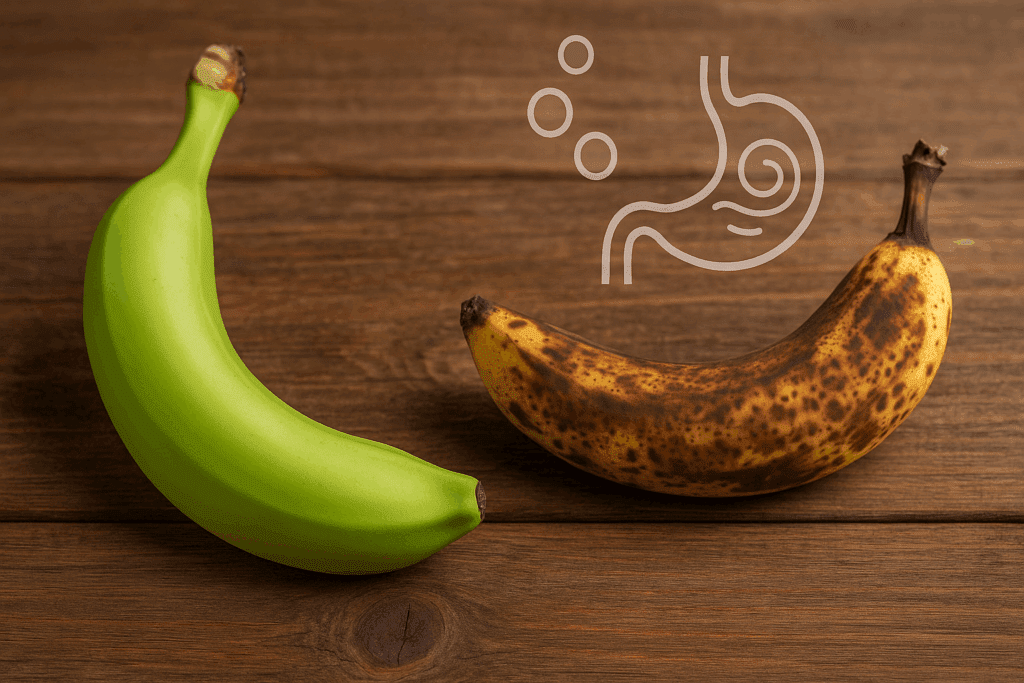
Why Do Bananas Give Me Heartburn? Breaking Down the Surprising Response
The question “why do bananas give me heartburn” challenges our assumptions about fruit acidity and digestive health. One possible explanation lies in the ripeness of the banana. As bananas ripen, their starches convert to sugars, altering the fruit’s pH and potentially increasing its impact on sensitive stomachs. While green bananas tend to be more alkaline and are often better tolerated, fully ripened bananas may be slightly more acidic and can ferment more rapidly in the stomach, contributing to gas and acid buildup.
Additionally, bananas contain a naturally occurring substance called amines—specifically serotonin—which can influence gut motility and acid production. For individuals with a hypersensitive gut or underlying conditions like irritable bowel syndrome (IBS), this can lead to symptoms such as bloating, discomfort, or acid indigestion. In such cases, bananas and acid indigestion may go hand in hand, especially when consumed on an empty stomach or alongside other triggering foods.
Another consideration is that bananas are high in soluble fiber, particularly pectin, which usually supports digestion but can also slow gastric emptying. This delay can cause a buildup of stomach contents, increasing the likelihood of acid reflux. So while bananas are not classified strictly among high acid foods, their unique biochemical makeup can provoke symptoms in susceptible individuals, especially when combined with dietary or lifestyle factors.
Are Bananas an Acidic Food? The Truth Behind the Label
The classification of bananas as acidic or non acidic food is more nuanced than it may appear. In the context of dietary planning for acid reflux, the distinction between acidic and non acidic foods is essential. Are bananas acidic food items? Chemically speaking, bananas have a pH level ranging from 5.0 to 5.3, placing them on the lower end of the acid spectrum and often within the low acid fruits category. However, this pH level can fluctuate depending on ripeness and storage conditions.
Despite being less acidic than oranges or pineapples, bananas may still irritate the digestive tract in some individuals. This is particularly true for people whose mucosal lining is already inflamed or weakened. For them, even mildly acidic foods can cause symptoms. In such scenarios, a banana that would typically aid digestion might instead lead to heartburn, bloating, or nausea. The term “bananas are acidic” must therefore be considered relative—not absolute—depending on an individual’s digestive tolerance.
To further complicate matters, bananas are often consumed in combinations that could enhance their acidic effect. Pairing bananas with yogurt, citrus-based smoothies, or sweet desserts might increase acid production or trigger food sensitivities. Thus, context matters: a banana by itself may be benign or even soothing, but combined with other ingredients, it could contribute to discomfort.
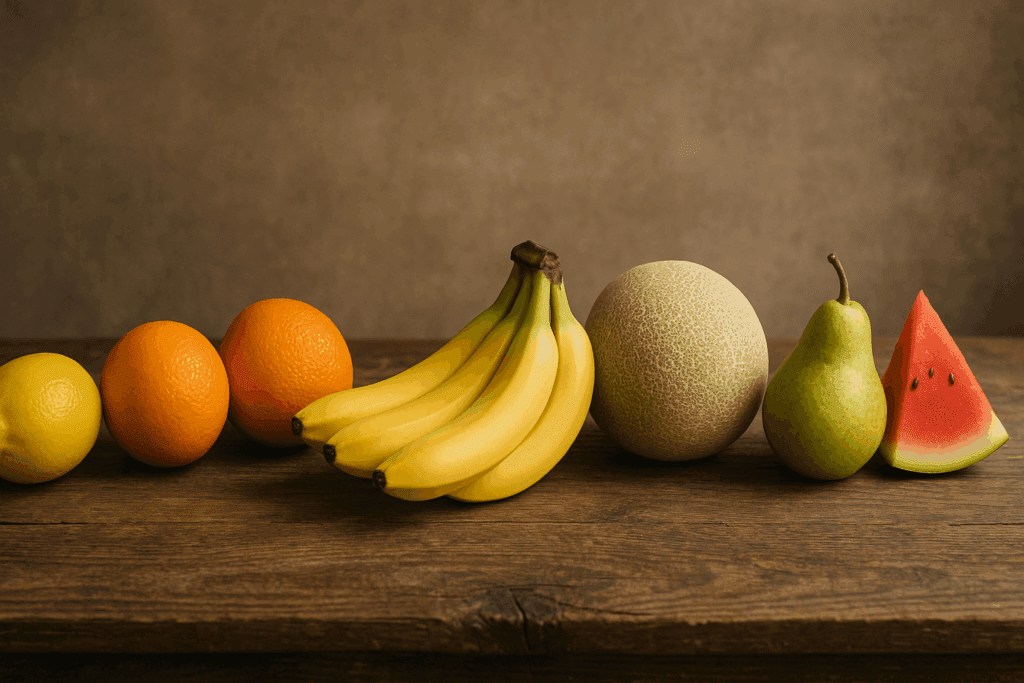
Can Bananas Cause Heartburn? What Science and Experience Suggest
Anecdotal evidence has long suggested that bananas may cause digestive upset in certain individuals. But can bananas cause heartburn according to scientific research? The answer is not straightforward. While bananas are generally recommended for their potassium content and ability to neutralize stomach acid, they also contain compounds that may stimulate gastric activity in specific cases.
Research into dietary triggers for GERD has produced mixed results, with individual responses varying widely. For example, a study published in the “World Journal of Gastroenterology” noted that patient-specific food triggers are a key factor in symptom management. In some cases, bananas were identified as a safe food; in others, they were reported to cause discomfort. This aligns with clinical observations where patients frequently ask, “do bananas give heartburn?” and receive varying responses based on personal digestive profiles.
It is also important to consider the quantity and timing of banana consumption. Eating large quantities of bananas, especially late at night or in a reclined position, increases the likelihood of reflux. Furthermore, the mode of preparation—raw versus blended or baked—can influence how the body processes the fruit. Therefore, the question “can bananas give you heartburn” is valid and contextually dependent on individual sensitivity, eating habits, and underlying gut conditions.

The Gut-Brain Axis and Banana-Induced Digestive Discomfort
The interaction between gut health and brain function—known as the gut-brain axis—adds an additional layer of complexity to the experience of heartburn. Emotional stress, anxiety, and depression have been shown to influence digestive processes, including acid secretion and motility. For individuals who are already sensitive to certain foods, emotional states can exacerbate physical symptoms, including those associated with bananas and acid indigestion.
When asking “do bananas cause acid indigestion,” it’s helpful to consider the psychosomatic component. The body’s response to perceived threats or stressors can amplify gastrointestinal symptoms. This means that even a mildly irritating food like a ripe banana may provoke significant discomfort in someone experiencing stress or emotional turmoil. In holistic medicine, the role of mindfulness, emotional balance, and nervous system regulation is increasingly emphasized in treating acid reflux and indigestion.
Understanding this connection can guide individuals toward a more integrative approach to managing their symptoms. Instead of eliminating bananas entirely, some may benefit from stress-reduction practices such as yoga, deep breathing, or acupuncture in conjunction with dietary adjustments. Addressing both the physical and psychological dimensions of digestion provides a more comprehensive and sustainable pathway to relief.
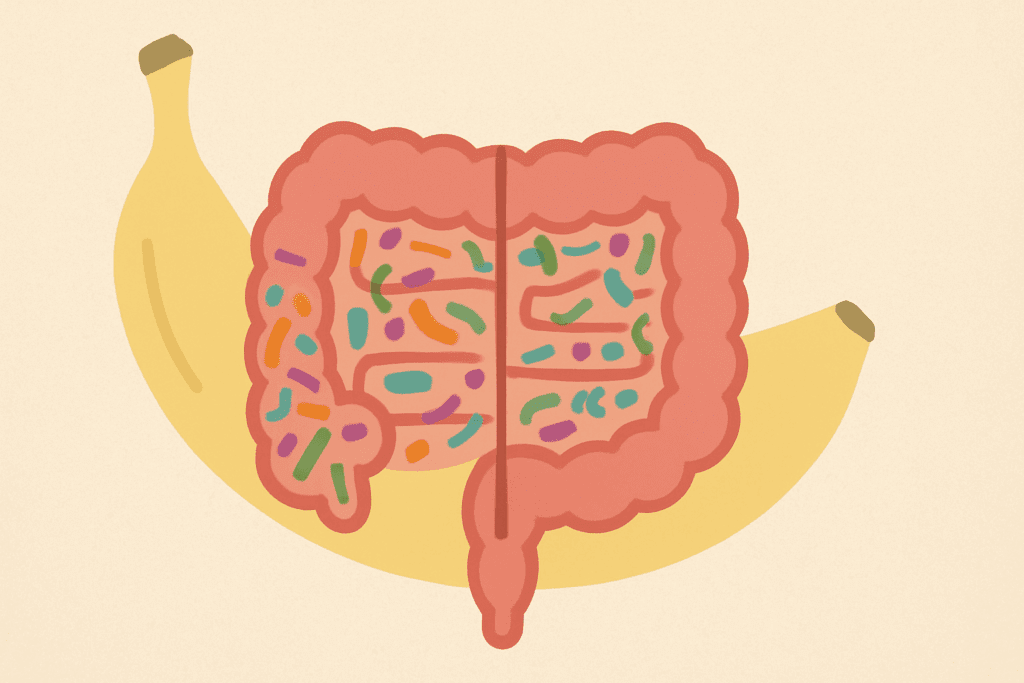
High Acid Foods vs. Low Acid Fruits: Finding Your Personal Threshold
When navigating heartburn and acid indigestion, understanding the spectrum of acidic and non acidic foods is essential. High acid foods include tomatoes, vinegar, citrus fruits, coffee, chocolate, and carbonated beverages—all of which are commonly linked to reflux. In contrast, low acid fruits such as melons, papayas, and certain varieties of apples and pears are often recommended for individuals with sensitive stomachs.
The question of “is watermelon an acidic food” also arises in this context. Watermelon, with its high water content and pH level around 5.2 to 5.6, is considered low in acid and generally well tolerated. Incorporating such low acid fruits can help buffer the stomach lining and reduce the risk of reflux, especially when consumed alongside lean proteins and whole grains. In comparison, bananas occupy a gray area and may need to be tested individually.
It’s worth noting that even within the category of low acid fruits, tolerance can vary based on preparation, serving size, and overall gut health. Individuals should keep a food diary to track symptoms and identify potential triggers. This practice empowers patients to make informed choices that align with their unique digestive profiles, rather than relying solely on general dietary guidelines.
Banana Heartburn and the Role of Gut Microbiota
Recent advances in microbiome research have revealed the critical role of gut bacteria in regulating digestion, inflammation, and nutrient absorption. The gut microbiota consists of trillions of microorganisms that interact with food particles and influence how the body responds to various dietary inputs. Disruptions in this microbial balance—known as dysbiosis—can increase sensitivity to certain foods, including bananas.
In individuals with dysbiosis, even traditionally soothing foods may provoke symptoms such as bloating, gas, and acid reflux. This may explain why some people experience banana heartburn despite the fruit’s generally low acid profile. The fermentation of banana sugars in the gut can produce excess gas, particularly when microbial imbalances are present. In such cases, restoring gut flora through the use of probiotics, prebiotics, and fermented foods may help alleviate symptoms.
Holistic supplements like digestive enzymes and herbal bitters can also support the microbiome by enhancing nutrient breakdown and promoting optimal gut function. For those experiencing discomfort from bananas and other borderline foods, microbiome testing and targeted supplementation can offer a data-driven path to healing. By addressing the root cause rather than just the symptoms, individuals can rebuild digestive resilience and expand their dietary options.
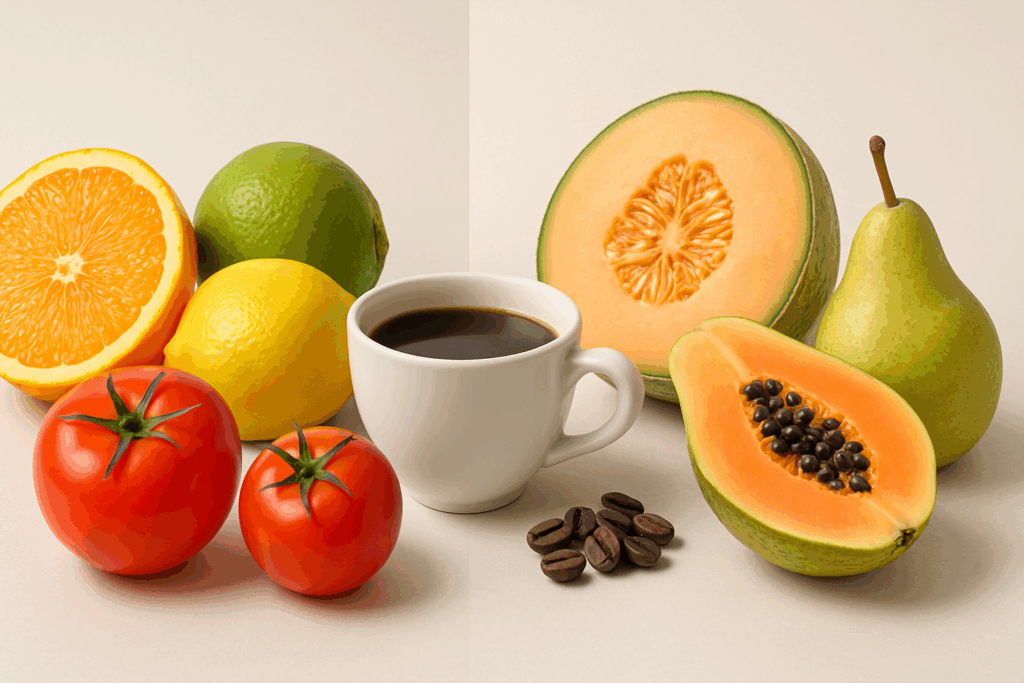
What Neutralizes Stomach Acid? Natural Remedies for Holistic Relief
While medications like proton pump inhibitors (PPIs) and antacids are commonly prescribed for acid reflux, many people seek natural alternatives to support their digestive health. Understanding what neutralizes stomach acid naturally can provide a more sustainable and gentle approach to symptom relief. Alkaline foods, herbal teas, and mindful eating practices are all part of a holistic toolbox for managing reflux.
Foods that help neutralize acid include leafy greens, oatmeal, ginger, chamomile, and certain low acid fruits. These can soothe the esophageal lining and reduce inflammation without suppressing stomach acid production entirely, which is important for nutrient absorption and immune defense. Supplements such as deglycyrrhizinated licorice (DGL), slippery elm, and marshmallow root have also shown promise in protecting mucosal tissues and promoting healing.
Mindful eating practices—such as chewing thoroughly, eating smaller meals, and avoiding late-night snacking—can further enhance digestive efficiency and reduce acid buildup. For those wondering what neutralizes stomach acid in the context of banana-related discomfort, combining dietary strategies with stress management techniques may yield the most effective results. The goal is not to eliminate acid entirely but to restore balance within the digestive ecosystem.
Why Do Bananas Give Me Heartburn? Exploring Personalized Approaches to Prevention
Returning to the central question—why do bananas give me heartburn?—the answer lies in the interplay of individual physiology, food chemistry, gut microbiota, and lifestyle habits. No single explanation fits all, and what causes heartburn in one person may not affect another. This highlights the importance of personalized nutrition and integrative care when addressing digestive concerns.
Rather than vilifying bananas, it is more constructive to evaluate their impact within the broader context of one’s diet and health status. Food sensitivity testing, stool analysis, and clinical consultation with a registered dietitian or integrative physician can provide deeper insights into what’s driving symptoms. Small changes, such as opting for less ripe bananas or pairing them with alkalizing foods, may significantly improve tolerance.
It’s also important to maintain a non-judgmental approach to food experimentation. Dietary adjustments should be guided by curiosity and compassion, not fear. When we begin to understand our body’s signals as messages rather than malfunctions, we create space for healing and empowerment. The key to resolving banana heartburn may not lie in avoiding the fruit altogether, but in approaching it with informed intention.
FAQ: Unpacking the Mystery of Banana-Induced Heartburn and Digestive Reactions
Why Do Bananas Give Me Heartburn Even When They’re Supposed to Be Gentle on the Stomach?
Bananas are often classified among low acid fruits, but their actual impact on digestion can vary widely based on individual gut health. For some people, bananas trigger increased fermentation in the gut, leading to gas and pressure on the lower esophageal sphincter, which can allow acid to rise into the esophagus. This might explain why do bananas give me heartburn, particularly if they are very ripe or eaten with high acid foods. Bananas can also contain compounds that stimulate stomach acid or delay gastric emptying, making reflux more likely in sensitive individuals. Although generally soothing for many, bananas are not universally benign and may behave differently in compromised digestive systems.
Are Bananas Acidic Food Options or Do They Belong Among Non Acidic Fruits?
Bananas sit in a complicated category within the spectrum of acidic and non acidic foods. Chemically, ripe bananas have a pH that hovers just above acidic, classifying them on the lower acid end, though still mildly acidic. However, their physiological effect may be more pronounced in people with compromised mucosal linings or those experiencing chronic acid indigestion. Unlike classic non acidic fruits like melons, bananas may ferment more rapidly, producing gas and increasing internal pressure. This nuanced response reinforces the importance of understanding that food acidity isn’t just about pH—it’s about how the food behaves once metabolized.
Can Bananas Cause Heartburn If They’re Eaten Alone or on an Empty Stomach?
Interestingly, eating bananas on an empty stomach can sometimes exacerbate symptoms for those with acid sensitivity. Without the buffering effect of other foods, a banana may contribute more significantly to acid production and pressure changes in the stomach. Can bananas cause heartburn in these cases? Yes, particularly when the gut is already inflamed or when the fruit is overripe. The simple sugars in bananas can ferment quickly when no other food is present to slow digestion, increasing the likelihood of banana heartburn. Combining bananas with a small serving of protein or healthy fat may improve tolerance for some individuals.
Do Bananas Cause Acid Indigestion More Often in People with Gut Microbiome Imbalances?
Yes, people with dysbiosis—or an imbalance in gut microbiota—may find that bananas and acid indigestion go hand in hand. When gut bacteria are not in harmony, the fermentation of banana sugars can become excessive, leading to bloating, cramping, and reflux. Do bananas cause acid indigestion in everyone with dysbiosis? Not necessarily, but the risk increases significantly if the person also consumes other fermentable carbohydrates. Addressing microbiome balance with probiotics or prebiotic-rich, non acidic fruits may help restore tolerance over time. Targeted gut health support can help reduce sensitivity to foods like bananas.
What Makes Some Fruits More Likely to Cause Heartburn Than Others?
The heartburn potential of fruit depends on factors like pH, fiber type, sugar content, and how they interact with your digestive enzymes and microbiota. High acid foods like citrus and pineapple are obvious culprits, but even fruits categorized as low acid fruits—such as bananas—can contribute to symptoms if the digestive system is already compromised. Watermelon, often asked about as in “is watermelon an acidic food,” is typically better tolerated due to its alkalizing effect and water content. Bananas, by contrast, contain pectin and fermentable sugars that can contribute to gas and reflux. Understanding these factors can help tailor your fruit intake to your digestive needs.
Can Bananas Give You Heartburn as a Delayed Reaction Hours After Eating?
Yes, bananas can give you heartburn hours after consumption, particularly if they slow digestion or are consumed with other reflux-inducing ingredients. This delayed onset is often confusing because people may not associate the banana with the later symptoms. Bananas are acidic in some metabolic contexts and may sit in the stomach longer when paired with heavy foods or eaten late at night. The extended fermentation process can lead to a buildup of pressure and subsequent reflux while lying down. This is why food diaries are valuable tools for detecting less obvious trigger patterns.
What Are Better Alternatives to Bananas for People with Sensitive Stomachs?
Those looking for substitutes often ask if there are non acidic fruits that support digestion without triggering symptoms. Papayas, melons, and pears are excellent choices due to their low acidity and digestive enzyme content. If you’re managing banana heartburn or similar discomfort, these fruits may provide the same nutritional benefits without the digestive stress. People with gut issues may also benefit from cooked fruits, which are easier on the stomach. Choosing fruits that are less fibrous and have higher water content often improves tolerance.
How Do I Know If Bananas Are the Actual Cause of My Symptoms?
Pinpointing banana-induced discomfort requires a bit of detective work. First, eliminate bananas from your diet for one to two weeks while keeping other variables constant. Reintroduce them in controlled portions and track any changes. If you ask, “do bananas give heartburn in isolation or only with other foods?”, this method helps clarify their role. It’s also helpful to consider ripeness, meal composition, and time of day when evaluating whether bananas are the culprit. Consultation with a dietitian can provide added clarity through professional elimination protocols.
Why Do Bananas Give Me Heartburn at Night More Than During the Day?
Nighttime banana heartburn is often the result of body positioning and reduced digestive efficiency during sleep. Lying down too soon after eating a banana—especially a ripe one—can cause stomach contents to press against the lower esophageal sphincter. This pressure increases the likelihood of acid reflux. Additionally, circadian rhythms slow down gastric motility in the evening, prolonging digestion and increasing susceptibility to reflux from even mildly acidic foods. If bananas must be eaten in the evening, combining them with more alkaline foods or choosing a less ripe variety may reduce symptoms.
What Neutralizes Stomach Acid Naturally When Bananas Trigger Reflux?
When bananas trigger acid reflux, many people wonder what neutralizes stomach acid without resorting to pharmaceuticals. Natural options include aloe vera juice, ginger tea, and magnesium-rich leafy greens. Alkaline-forming foods like cucumbers, celery, and oatmeal can also buffer stomach acid effectively. These options provide relief without suppressing acid entirely, which is crucial for maintaining healthy digestion. In addition to food, relaxation techniques like diaphragmatic breathing can help regulate the digestive process and reduce the impact of acidic and non acidic foods alike.
The Final Word: Reclaiming Comfort Through Gut-Friendly, Holistic Solutions
In the end, the question “why do bananas give me heartburn” serves as a powerful entry point into a broader exploration of digestive health. While bananas are not typically classified as high acid foods, their interaction with individual biology can lead to unexpected symptoms, including heartburn, indigestion, and bloating. This reality underscores the importance of recognizing that dietary effects are never one-size-fits-all.
By examining the roles of food acidity, gut microbiota, emotional health, and holistic supplements, we can adopt a more nuanced and empowering approach to managing digestive discomfort. Instead of relying solely on generic dietary advice, embracing personalized strategies—grounded in both science and self-awareness—can lead to lasting relief.
The path forward involves more than simply asking whether bananas are acidic food items or what neutralizes stomach acid. It requires an integrated understanding of how our bodies respond to specific inputs and how we can support those responses through mindful nutrition and natural interventions. In doing so, we not only answer the question at hand but also lay the groundwork for lifelong digestive well-being.

